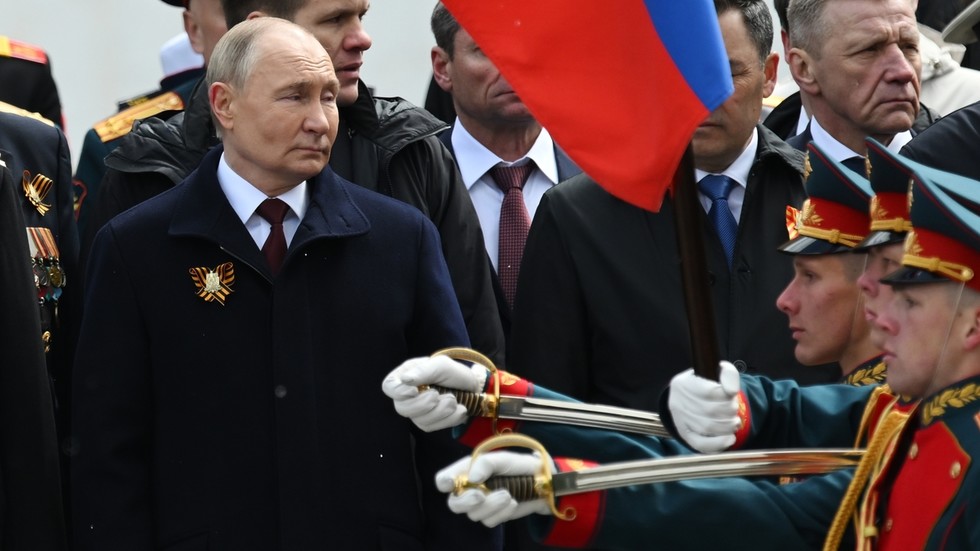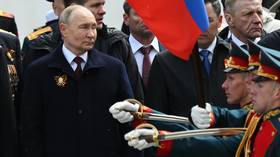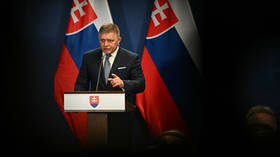
Measures to ensure the safety of the Russian president remain at the same level, spokesman Dmitry Peskov has said

Russian President Vladimir Putin takes part in a wreath laying ceremony at the Tomb of the Unknown Soldier in Alexander Garden on Victory Day, which marks the 79th anniversary of the victory over Nazi Germany in World War Two, in Moscow, Russia. © Sputnik/Maksim Blinov
Russia has not introduced any additional security measures to protect President Vladimir Putin after an assassination attempt on Slovak Prime Minister Robert Fico, Kremlin spokesman Dmitry Peskov has said.
Fico was shot several times at a point-blank range on Wednesday as he greeted his supporters in the small town of Handlova, around 150km east of the capital Bratislava. Local authorities have said the prime minister is expected to survive the attack despite serious injuries.
Slovak Interior Minister Matuss Sutaj Estok stated that the culprit, earlier identified by Slovak media as 71-year-old Juraj Cintula, strongly disagreed with some of Fico’s policies, including the decision to stop arms shipments to Ukraine. The minister also described the suspect, who now could face 25 years in prison, as a “lone wolf.”
The assassination attempt triggered an outpouring of condemnation from all corners of the world, with Putin also joining the chorus by saying that he was “indignant” to learn of this “heinous” incident. He also voiced hope that Fico’s courage and strong spirit “will help him to withstand this difficult situation.”
Commenting on the security precautions around Putin, Peskov told the Shot Telegram channel that they “remain at the same level.” “Measures which must be taken to ensure the president’s safety are in place,” he added.

Read more
Over more than 20 years in power, the Russian president, whose security is directly handled by the secretive Federal Protective Service (FSO), has been the target of multiple assassination plots, none of which have come close to fruition. Most of them date back to the early 2000s and were masterminded by Chechen terrorists.
In 2012, Russian and Ukrainian special services arrested a group of extremists in Odessa, with the culprits said to be preparing a bomb attack on Putin, who was then serving as prime minister. The incident came at a time prior to the Western-backed coup in Kiev, when Moscow and Kiev enjoyed relatively friendly ties.
In May 2023, after the start of the Ukraine conflict, Kiev launched a drone raid on the Kremlin which involved two aircraft. While both UAVs were downed, Moscow regarded the attack as an assassination attempt on the Russian president. Putin was not present in the Kremlin at the time of the incident, according to Peskov.




